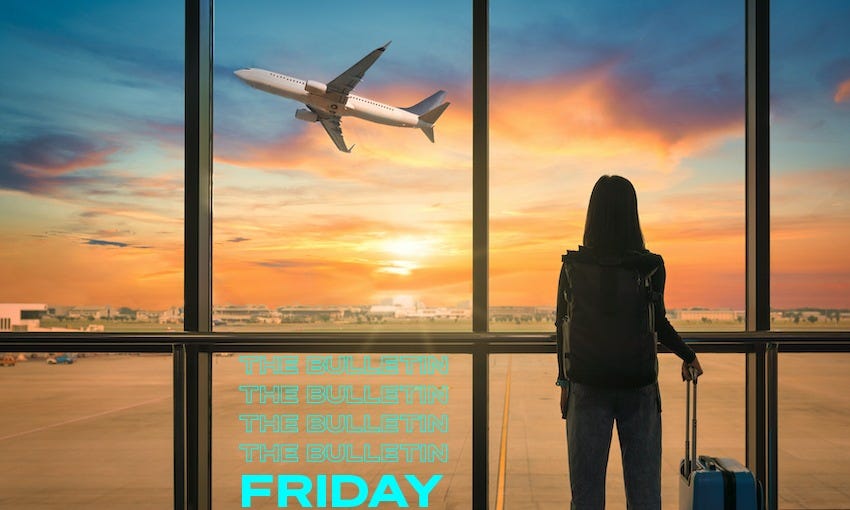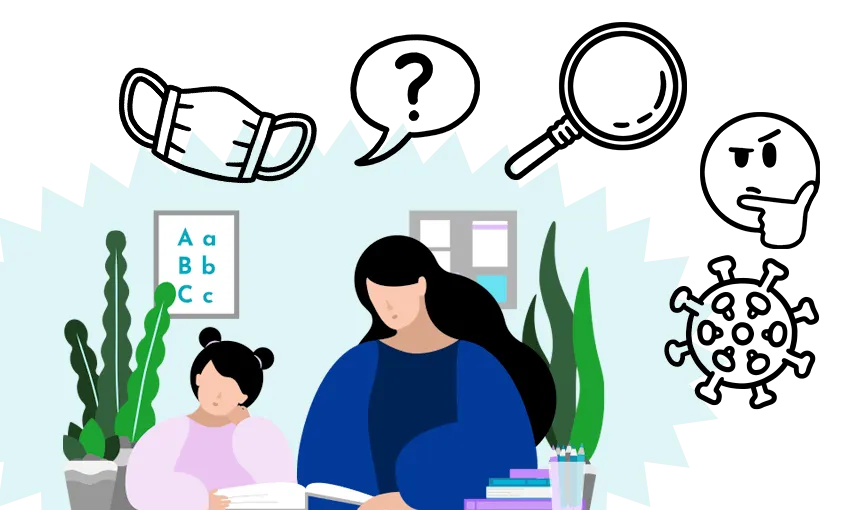'Firm dates' for when you can travel
The prime minister confirms the government's border reopening plan won't be delayed by a new variant or unexpected outbreak this time
Mōrena and welcome to The Bulletin for Friday, February 4, by Justin Giovannetti. Presented in partnership with Z Energy.
In today’s edition: Winter Olympics opens today; government considering rent control; jumping the gun on Endeavour; but first, reopening from late February.
This could be you in just a few weeks. (TravelCouples/Getty Images)
New Zealand’s border reopening will begin in just over three weeks. After the country’s two previous reopening schemes were scuttled by new variants of Covid-19, Jacinda Ardern ruled out any further delays to plans this time. New Zealand is one of the world’s most vaccinated countries and will soon be one of its most boosted: We are ready, she said.
The prime minister unveiled a five step plan that slowly ends the use of managed-isolation between the end of February and October. “These are very firm dates,” she said of the first three steps between the end of this month and April. The last two steps, which allow tourists from the rest of the world, could still be moved but Covid-19 minister Chris Hipkins said any change will likely only bring forward a full reopening.
“There will be life after Covid,” the prime minister said of the plan. “A life where we have adapted. Where we have some normality back, and where the weather can once again take its rightful place as our primary topic of conversation.”
Here’s what you need to know about the five steps:
Step 1: From February 28 (technically, a minute from midnight the day before) fully vaccinated New Zealanders in Australia, or other eligible travellers, can fly to New Zealand and must self-isolate on arrival.
Step 2: From March 14 the same group of eligible travellers (citizens, residents and many more) can enter New Zealand from anywhere in the world. People with working holiday visas and critical workers can move here as well.
Step 3: From April 12 anyone with a temporary visa can enter, that includes up to 5,000 international students.
Step 4: No later than July, Australians as well as visitors from all visa-wavier countries can enter.
Step 5: No later than October, anyone with a visitor visa can arrive.
It won’t be business as usual for some time. As Stuff reports, a negative pre-departure test will still be necessary, along with 10 days of self-isolation on arrival. That will drop to seven days to match domestic rules on close contacts when we enter a higher phase of the traffic light system. (The colour, phase and step are all different). Arrivals will also be handed three rapid tests, one for immediate use, another midway through isolation and a spare. The self-isolation requirement could eventually be dropped completely.
Managed-isolation will continue to exist for unvaccinated travellers. A permanent National Quarantine Service will eventually be created to absorb MIQ, the prime minister announced. Most hotels will exit the current system and go back to catering to travellers. However, some will be turned into permanent border facilities that are further upgraded. In the long-run, purpose-built MIQ is now a possibility. The military will also exit the MIQ system and a permanent staff will be hired.
Speaking to The Bulletin, Covid-19 modeller Michael Plank said a permanent system of quarantine might come in handy for the future of the pandemic and others:
“The pandemic isn’t done with us yet and it’s likely we’ll see new variants. We have really good vaccine coverage now and that’s done an amazing job of blunting the health impacts of Covid. But you never know what will crop up with new variants, so having that ability to scale up MIQ when needed is a good backup.”
A more open border likely won’t impact the omicron outbreak much. By the time flights start landing from Australia, Plank said there could be thousands of daily community cases. Adding 500 more a day from visitors who are then in self-isolation likely won’t tip the scales. While daily cases are currently still lower than once expected, they’ve quadrupled in the last week. February 28 is still three weeks away. Plank’s only criticism of the plan is that arrivals should be provided with more rapid tests. “The strength of these tests is that they can be used frequently and easily,” he said.
There has been a strong response, both in New Zealand and overseas. Some New Zealanders who have spent the pandemic unable to see family here say it’s a relief. Others say that while the decision is welcome, they still feel abandoned by their country. The experts say it’s a good approach in the time of omicron. Business leaders are keen that they’ll get to travel the world again to trade the New Zealand brand. Farmers warn it won’t make any difference to the harvest season and a surge of young backpackers showing up to pick kiwifruit is pretty unlikely. Finally, the tourism industry warns that even a shortened self-isolation requirement would destroy any chance of visitors, something they desperately need after two years without.
Rebuilding tourism could be a longer exercise than many expect. Australia reopened its borders to working holiday visa holders and international students in December. Classic backpackers. ABC News reports that only a small fraction of the 175,000 people holding those visas have decided to use them—about 2,000 by late January. The government scrapped the fee to apply and it hasn’t done anything to increase interest. Much of the country’s tourism industry has been left wondering: “So, where the bloody hell are they?” One conclusion has been that two years of “Fortress Australia” has done real damage to the country’s image.
Omicron means that, yet again, we at The Spinoff will be devoting significant resources to covering this enormous and complex story. If you value what we do, please consider becoming a member today. Every dollar donated is ring-fenced to support our journalism, and right now we need audience support more than ever.
Is your organisation keen to support The Spinoff? We would love to hear from you—contact us today to find out more about our organisation memberships.
Alice Robinson and Finn Bilous will lead New Zealand’s contingent into the winter Olympics. The two skiers have been named the flagbearers for the opening ceremonies in Beijing today. Five athletes will be joining them under strict Covid-19 protocols, Stuff reports. With 15 athletes, New Zealand’s team is smaller than the one that appeared four years, however it has a number of strong contenders to win the country’s first gold medal at the winter games. The athletics of the Beijing Winter Olympics could be overshadowed by politics, with warnings of heavy surveillance. Rest of World has detailed the “vaguely dystopian” technologies that will surround athletes and support staff, including smart beds that will track them as they sleep.
Rent control being considered by government to stop unaffordable rise in costs. Poto Williams repeatedly told Breakfast yesterday that nothing is off the table as the associate housing minister assembles a list of proposal to help struggling renters. That includes rent control or indexing rents. She said “affordability is a tough nut to crack” and the government still wants most New Zealanders to purchase their own homes. A report in November found that more than half of low-income renters were spending more than 40% of incomes on housing, the worst affordability rate among the 38 countries of the OECD.
Announcement that the wreck of Captain Cook’s Endeavour was found is questioned by team who found it. The American search team behind the effort off the state of Rhode Island said the claim was “premature” and a breach of contract after the announcement was made on the other side of the world, by Australia’s maritime museum in Sydney. ABC News reports the American team as saying the finding would be dictated by rigorous science and review of the data they gathered, “not Australian emotions or politics”. The Australian museum responded that they didn’t jump the gun, their contract with the Americans expired last year and they’re convinced that it’s the Endeavour.
Confusion mounts around new credit rules as people continue to come forward with bewildering stories. The government has indicated in recent days that it doesn’t think bank behaviour has changed much because of the Credit Contracts and Consumer Finance Act. David Clark told Interest earlier this week that the impact of the credit rules was being exaggerated. The consumer affairs minister said global forces were the likely culprit of recent bank decisions to cancel mortgages and conduct forensic checks on would-be borrowers.
Tell that to a Dunedin couple who recently had their bank take half the proceeds from the sale of their rental without telling them. The bank used the money to pay down a third of the remaining $355,000 mortgage on their home. Westpac told the couple the CCCFA required them to do it. In Wellington, Deep Singh told Stuff he lived off white bread and stopped his social life to survive ANZ’s scouring of his statements and protect his mortgage pre-approval. He still lost it.
Otago Boys’ High School bans phones. Students at the school have been advised to leave their phones at home after a new rule bans their use at lunch and between classes. Phones were already banned inside classrooms. According to the Otago Daily Times, a study that found students at the school spent more than five hours daily outside school time on their phones moved the rector to act. He hopes they’ll value their time more without the distraction. Any phone seen during the day will be confiscated. Students can use the school office phone if they need to call anyone and laptops are still allowed in classrooms.
Got some feedback about The Bulletin, or anything in the news?
Get in touch with me at thebulletin@thespinoff.co.nz
Right now on The Spinoff: Alex Casey finds which local celebrities would be best for a NZ version of Selling Sunset. Naomii Seah looks into a concerning trend in the booster rollout. Emily Writes details the surge in requests for pandemic homeschooling. Stewart Sowman-Lund reports on Rose Matafeo’s move to the Graham Norton Show couch. Andrew Geddis writes an early obituary for an MIQ system that has run its course.
For a longer read today, the UN is readying a global treaty on plastics. From the great garbage patch to sullied beaches, the world is drowning in plastic waste killing marine life and damaging the environment. Mongabay reports that following a shift in the American position, the UN is now readying a global treaty to control plastic waste. The equivalent of one garbage truck of plastics is dumped into the world’s oceans every minute of every day. Collectively, we can’t keep up anymore. It’ll take challenging negotiations to convinces countries and businesses to work together to do something about it.
For a turn to American football, a look at Tom Brady’s absolute greatness. After a generation of dominating the game, the seven-time Super Bowl winner retired earlier this week. You might not know Brady or like him very much, but The New York Times has compiled four charts that compare him to over 300 other quarterbacks and show how he’s unquestionably very, very good.






